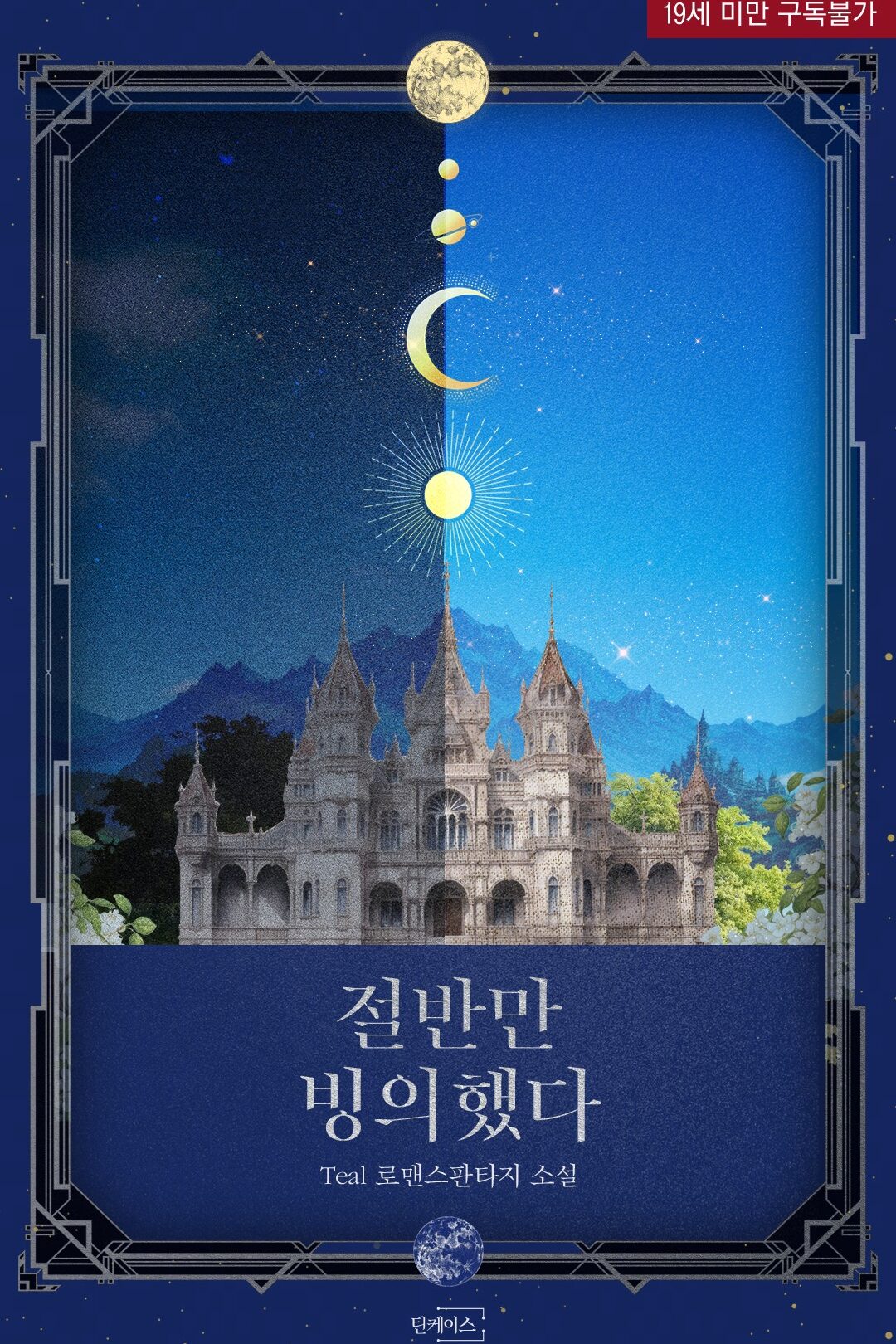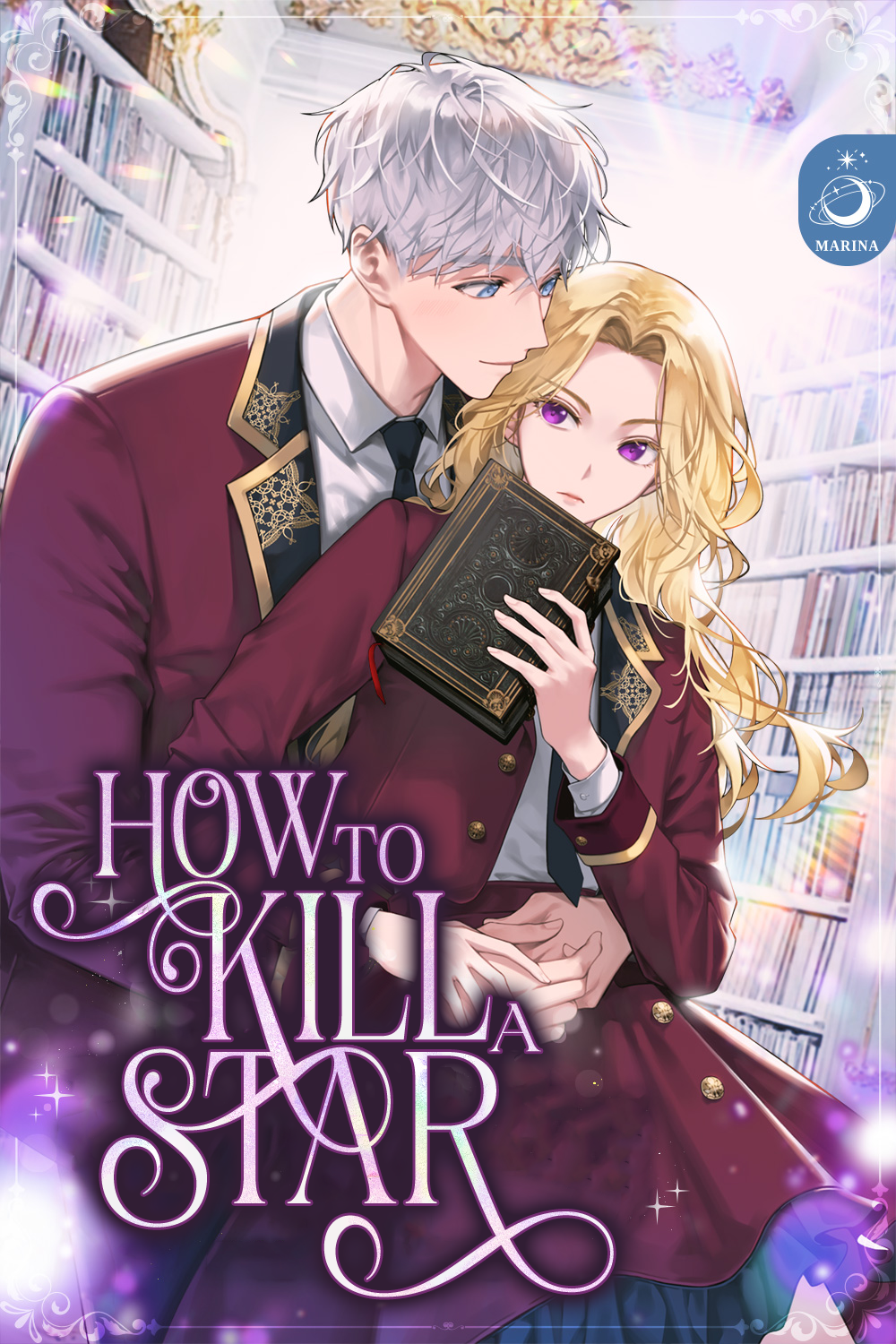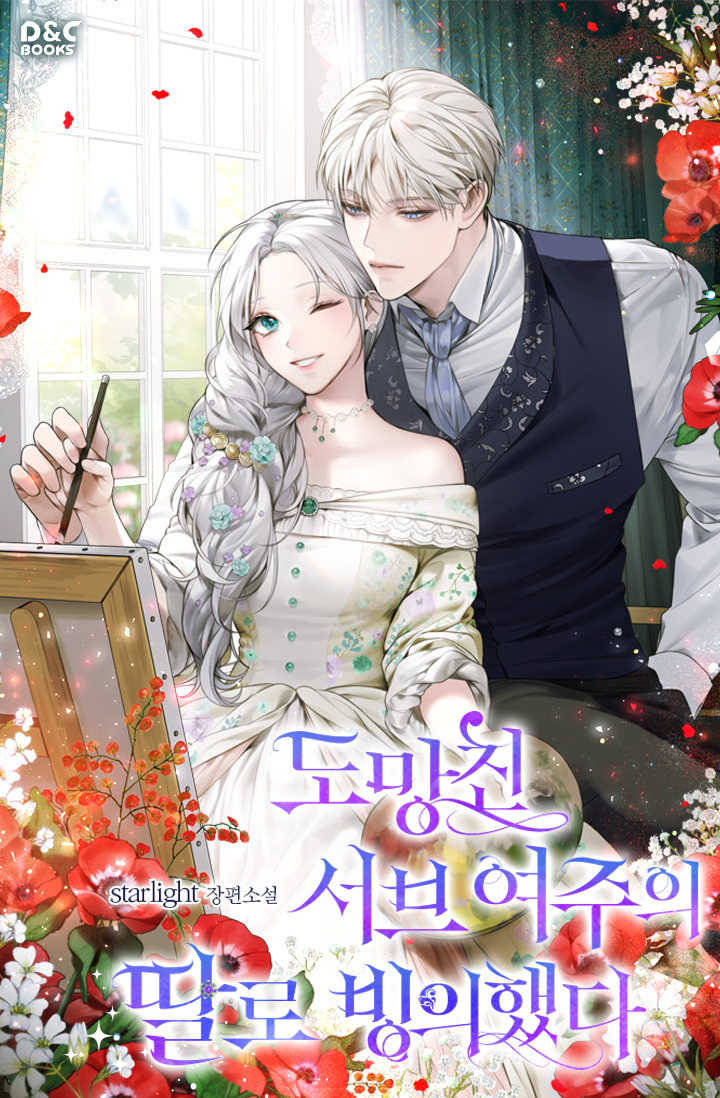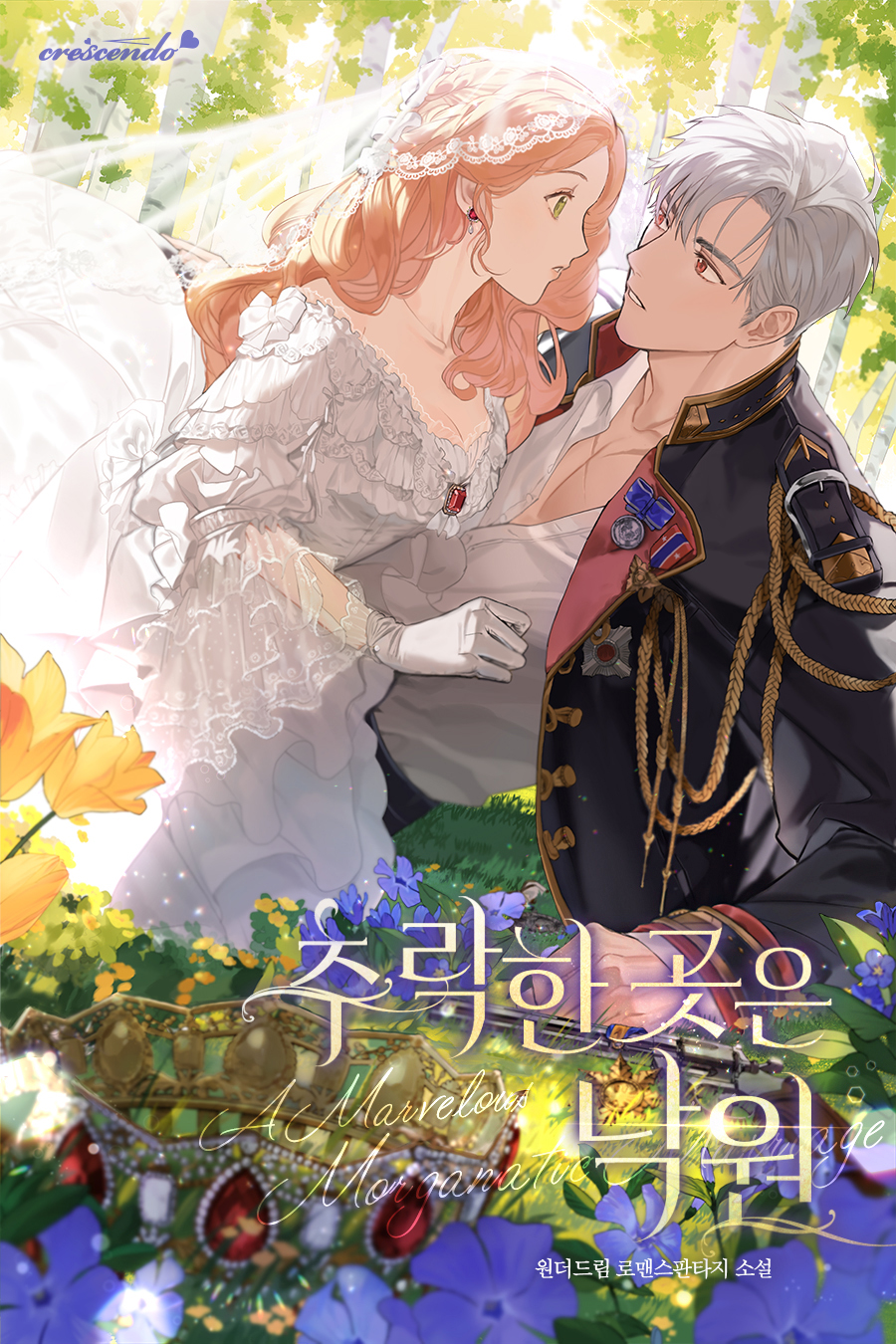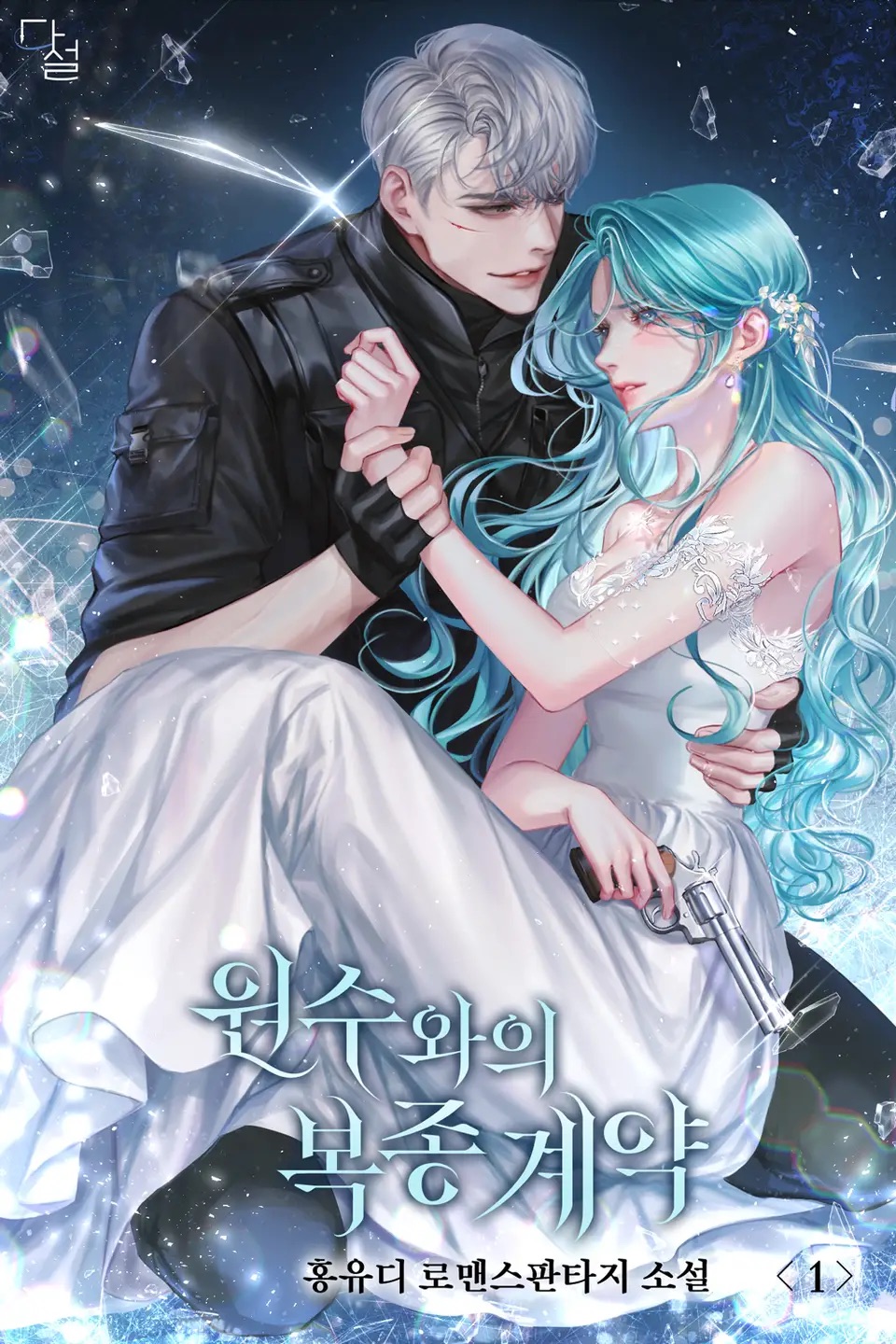Chapter 1
Time flies.
It felt like hardly any time had passed, but when I looked back, so much had already slipped away.
I stood still, staring into the mirror, and slowly reached out to touch the reflection of my face.
It felt like just yesterday I was twenty, looking into this very mirror. But the once-lustrous skin had vanished, and faint wrinkles now lined the corners of my eyes.
Nothing inside this mansion had changed. And yet, the person standing before the mirror felt like a completely different being.
Age thirty-eight. An old maid.
The impoverished daughter of a baron.
Belia de Farrington.
Those were the words used to describe me.
In noble society, where arranged marriages were common, most women married by their mid-twenties at the latest. By this age, they typically had two or three children who still wore the innocence of youth on their faces.
But I had nothing.
No husband to quarrel or laugh with, no children to adore more than life itself…
Our family held the lowest rank of nobility—baron—and we couldn’t even afford a proper dowry to offer in marriage.
Even if I put all of that aside, I was simply too old.
At thirty-eight, I was no longer beautiful. No longer radiant.
There wasn’t a single man who would want someone like me.
I had long since given up on the idea of marriage, but the way the years had passed in the blink of an eye—it felt so cruel.
Where had it all gone wrong?
Was it that day, when I turned eighteen and my mother no longer recognized me?
—”Who are you? Why are you in this house?”
The shock and terror of that day remain vivid in my memory.
After examining her, the doctor put a name to her condition in a single word:
Dementia.
He said her memories would gradually fade, that she’d forget the people around her, and eventually, even forget the things she had just done.
Back then, I didn’t fully understand how terrifying a disease dementia could be.
My two older sisters, who were significantly older than me, were already married by then. Naturally, the responsibility of caring for our sick mother fell to me, the one who had stayed behind.
And so, one year passed, then another…
As time went on, my mother’s symptoms worsened, though her body remained healthy.
The real problem—one I hadn’t anticipated—was that our family simply didn’t have enough wealth for me to continue living without working, solely caring for my mother.
Our father, the baron, had died when I was young, leaving only our mother. And since there were no sons, only us three daughters, there was no heir to inherit the title.
For now, we were barely holding on to the name of the barony, since Mother was still alive. But without an heir, even that could disappear at any moment.
I had no choice but to let go of all the remaining servants in the household and take on every chore myself.
I couldn’t take my eyes off Mother, not even for a moment. She was unpredictable and could cause an accident at any time. That meant my options were extremely limited. The only thing I could do was cut costs wherever I could.
Fortunately, my sisters contributed a little money from time to time, but that was it.
They were too busy with their own lives to help, and before I knew it, all of Mother’s care had fallen solely on my shoulders.
And so, twenty years went by.
By the time I finally came to my senses, I was thirty-eight years old.
Just a short while ago, I collapsed on the floor, sobbing uncontrollably, as my mother smeared feces on the wall and laughed.
I was exhausted.
I felt the overwhelming urge to just die alongside her.
Maybe it was because of that cruel thought—just days later, she passed away peacefully in her sleep, with the calmest expression on her face.
And today was her funeral.
I stood motionless, gently brushing my fingers across the reflection of myself in the mirror.
The woman in the plain black dress radiated the composed air of a woman in her thirties.
Her pale, snow-white skin seemed almost ghostly beneath the silver hair that had faded like light bleached by time. Her clear, blue eyes still held a certain grace, but the traces of the years couldn’t be hidden.
She looked like a proper woman in her thirties. Nothing more, nothing less.
And today, for some reason, this version of myself felt strangely unfamiliar.
In truth, even the silence that now filled the house felt unfamiliar.
Mother had always been trying to go outside, and I had always been battling to stop her. Our struggles were constant and intense.
At some point, I started wishing she would just disappear.
I can’t count how many nights I lay in bed alone, silently resenting her.
But now that she’s truly gone—this very moment—I could feel it, painfully and clearly:
There is nothing left by my side.
Drop—
A single tear fell before I even realized.
I had thought that everything would get better once she was gone.
But I was wrong.
There was no turning back the time that had already passed.
Nothing had changed—at least, nothing meaningful.
All that was different now was that the mother who had stayed by my side like a child, like a companion, was gone.
“…I’m sorry, Mom.”
I should’ve done better.
No matter how hard it was, I shouldn’t have snapped. I should’ve smiled a little more.
Drop. Drop. Drop.
Tears fell endlessly to the floor beneath my bowed head.
I used to think I wanted to cast off the heavy burden of being her caregiver.
But now that the moment had actually come, all I could feel was the absence of the pillar that had supported me all those years.
I felt like I’d been left behind.
Alone.
Abandoned.
The funeral was held with proper formality.
Relatives arrived dressed in black, and the ceremony ended as my mother’s casket was lowered into the grave.
“Sob… sniff…”
Scattered weeping could be heard from various corners, but for some reason, I didn’t cry.
I just stood there, blankly staring at her grave.
Even now, it felt like I would wake up tomorrow to find my mother—mentally regressed—ready to start another battle with me.
That felt more real.
This entire situation didn’t feel like it was really happening.
While I stood there in a daze, the relatives began to leave, one by one.
In the end, only my two older sisters remained.
“Belia.”
I turned toward the voice calling my name and saw the plump face of my eldest sister, Medina.
Medina, the first daughter of House Farrington, was a middle-aged woman with two grown sons.
“Now that the funeral is over, let’s go back to the house. We need to talk,” she said.
As if waiting for the cue, my second sister, Claire, chimed in.
“She’s right. We have to talk about what comes next.”
Unlike the stout Medina, Claire was rather thin, but she, too, was a middle-aged woman with grown children.
I met their eyes and gave a small nod in response.
When we arrived back at the house where I had lived with Mother, I was surprised to find both of my sisters’ husbands already gathered inside.
It felt oddly like something had been prepared in advance.
Still, I greeted the family members I hadn’t seen in a while.
“Hello. I hope you’ve all been well.”
Medina’s husband, Miles, held the title of viscount.
Claire’s husband, Denver, was a baron.
Miles was the first to respond, flashing a practiced, insincere smile.
“Yes, well… it’s been a while.”
Denver, more curt, simply pointed his chin at a nearby chair and said:
“Sit.”
I quietly took the seat he indicated. As I did, I noticed all four of them watching me in unison.
Anyone with a brain could tell they were about to bring something up.
“Do you… have something to say to me?”
At my question, everyone turned to Medina.
She sighed and finally spoke, as though she’d drawn the short straw.
“Belia, listen carefully. We’ve already discussed this among ourselves. We were trying to figure out how to bring it up to you, but we thought it’d be best to just get straight to the point.”
I gave a weary smile and tried to lighten the mood.
“Why so dramatic? What is it?”
But my joke fell flat. Medina’s face was completely serious.
“Now that Mother has passed, we can’t keep sending you living expenses.”
“…Ah.”
It hadn’t even occurred to me until she said it, but she was right.
Now that Mother was gone, it didn’t make sense to continue receiving money from my sisters.
That money had never been mine—it was for her.
“I understand. It’s only fair. Now that Mother’s gone… I’ll figure things out. I’m not sure what I’ll do yet, but I’ll manage somehow—”
“We’re selling the house, too.”
Medina’s unexpected words stunned me.
Before I could even respond, Claire—who had been silently listening—nodded in agreement with a shameless expression.
“What are you so shocked about? This house doesn’t belong to you. Now that Mother’s gone, we’re going to sell the Farrington barony title to a suitable relative. That way, we can recover the living expenses we sent her all these years.”
Everyone in the room nodded in agreement.
Finally, Medina delivered what felt like a death sentence in a flat voice.
“It’s not just the title or this mansion. We’ve already decided to sell the small patch of land the family still owns, too.”
With that, the initial shock gave way to a deep, sinking heaviness.
A crushing sense of loss wrapped itself around me.
“Then… what about me?”
Medina and Claire had long since married into noble houses. One was a viscountess, the other a baroness. I, on the other hand, had never married.
I knew it would be difficult to maintain the Farrington name without an heir, but if they sold the title to a distant relative, I would no longer belong to the nobility at all.
And that wasn’t all.
If they sold this mansion and the last remaining land, I’d have nowhere to live.
I tried to keep my trembling shoulders still as I spoke.
“Maybe the Farrington name doesn’t mean much to you anymore… but it still does to me. I was the one who took care of Mother for twenty years. You can’t just… do this.”
“We didn’t have a choice! My husband racked up a mountain of debt from gambling!”
Claire snapped in frustration, shooting a glare at her husband, Denver. He merely coughed awkwardly and looked away.
Medina, perhaps trying to soften the blow, looked at me with a sympathetic expression.
“I know this must be hard for you, Belia… but we’re struggling too.”
Rage welled up inside me like fire in my chest.
It was the same as always.
Just like twenty years ago, when they had dumped all of Mother’s care on me.
“You’re not the only ones who’ve struggled…”
For years, I had tried to understand, tried to be patient because I thought they were going through hard times too.
But this… this was too much.
“I struggled too.”
At thirty-eight, I had nothing left.
And if they took even this away from me, I didn’t know how I would go on.
Medina looked at me coldly and said:
“Even if you object, it’s not your decision. Without a male heir, the rights to the estate fall to me as the eldest. I appreciate the years you cared for Mother, but that doesn’t mean we can just hand everything over to you.”
“But still—!”
I tried to argue, but Claire cut me off sharply.
“Really, what were you even doing all these years? You’re almost forty and you still haven’t managed to find a husband. Wasting time collecting pictures of Duke Acruge, of all people…”
The moment she said his name, I saw the sneers on Miles and Denver’s faces.
Teansis Kashan Acruge.
The most sought-after nobleman in the empire. The ideal man every noblewoman dreamed of.
I clenched the fabric of my skirt tightly, biting back humiliation.
It wasn’t like I actually believed I could be with someone like Teansis. Like many others, I had admired him from afar—just harmless admiration, nothing more.
Watching someone so perfect gave me a momentary escape from the harshness of reality.
With my face burning, I said nothing, and Claire looked at me with thinly veiled contempt.
“How about marrying Viscount Shuliman before we sell the title off? You said he was interested in you. Sure, he has three grown sons, but at your age, you’re lucky to have any offers at all. If not that, then maybe a convent…”
“Enough.”
I couldn’t listen to them anymore.
“Not even a day has passed since Mother’s funeral.”
Until now, Mother’s death hadn’t quite felt real. But looking at Medina and Claire, it finally started to sink in.
She was gone. And I was alone.
“Shouldn’t your first words to me have been, ‘Thank you for taking care of her all this time’? Shouldn’t that have come first?”
No one had a response to that.
A heavy silence fell between us.
I kicked them out.
I forced the rest of the family out of the house where I had lived with Mother.
They left, shouting that I was the one losing out, that this would cost me in the end—but I had no intention of speaking with them any further.
I was furious and hurt.
Twenty years of my life spent caring for Mother… now felt like they had been in vain.
There were moments when I thought back on the youth I’d lost, and the ache in my heart would be unbearable.
Still, I told myself it had all been a necessary sacrifice—for family.
But the way they treated me the moment Mother passed…
They didn’t even try to understand what I had been through. They treated me more cruelly than strangers.
That shouldn’t have been possible.
My throat tightened. I felt like I was about to break down into sobs at any moment, so I quickly bowed my head.
I didn’t want to cry.
Not today.
If I cried now… I’d truly feel pathetic.
And then I saw it.
Lying on the floor where my gaze had dropped—a copy of today’s newspaper.
One ad caught my eye: Kamar Academy was looking for an assistant apothecary.
Mother’s dementia had been incurable, but I had spent years studying medicine in hopes of easing her condition, even just a little.
Maybe I could do this, too.
I had never felt more useless than I did today. I had to do something—anything.
If I didn’t move, I felt like I might just disappear.
So, without a single drink, I packed my things on impulse and left the house—just like someone drunk out of their mind.
I wasn’t even thinking straight as I made my way to the lab where an alchemy professor from the academy worked, hoping for an interview.
The guard who guided me inside had kindly handed me a drink and told me to wait a moment.
But in my dazed state, I accidentally confused the drink with a mysterious sample from the lab.
The moment I tasted it—bright pink and strangely flavored—I knew something was wrong. But by then, it was too late.
My head spun violently. I felt like I was about to collapse.
Crash!
The glass vial I’d been holding slipped from my hand and shattered on the floor.
But I couldn’t even look down.
Because in the reflection on the lab’s glass wall—lined with shelves of mysterious potions—I saw something impossible.
Then me, I had lost.
The youthful version of myself that had once shone so brilliantly.
I could only stare, wide-eyed, running trembling fingers across the face in the reflection.
“…I… I’m young again?”

